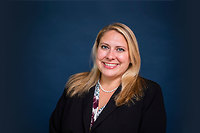In Ohio, a claim for negligent procurement of coverage against an insurance agent is subject to a four-year statute of limitations. But there has been uncertainty surrounding when the four-year time limit is triggered.
Generally, the statute of limitation begins to run on a claim when the injury that the claim is based on occurs. Two exceptions exist that address concerns about unfair outcomes caused by applying statutes of limitations: the “discovery rule,” which starts the clock on a claim when an injury was, or should have been, discovered; and the “delayed damages rule,” which adjusts the date the statute of limitations begins to run until damages are incurred.
Based on a 1982 Ohio Supreme Court decision, Kunz v. Buckeye Union Insurance, some Ohio appellate courts applied the delayed damages rule to claims for negligent procurement of professional-liability insurance. The triggering event in this scenario was when the insured’s claim was denied on a loss that the insured believed should have been covered. However, other appellate courts applied a standard four-year statute of limitations starting on the date the policy was issued. This difference between appellate courts created uncertainty in outcomes of similar cases.
In LGR Realty, Inc. v. Frank & London Insurance Agency, Slip Opinion No. 2018-Ohio-334, the Ohio Supreme Court held that the statute of limitations begins to run on a claim for negligent procurement of professional-liability insurance on the date the insurance policy is issued. The Court explicitly denounced the application of the “delayed damages rule”, but did not specifically overrule it’s 1982 Kunz decision. This failure, as pointed out by the concurring opinion of Justice DeWine, will continue the confusion on the triggering of the four-year statute. Instead, the court chose to distinguish the case before it from the Kunz “delayed damages” trigger based upon the nature of the coverage purchased.
If you would like a full copy of the LGR Realty opinion, or if you have any other questions regarding insurance agent or other professional liability, please contact one of our Miscellaneous Professional Liability Practice Group Members.
This has been prepared for informational purposes only. It does not contain legal advice or legal opinion and should not be relied upon for individual situations. Nothing herein creates an attorney-client relationship between the Reader and Reminger. The information in this document is subject to change and the Reader should not rely on the statements in this document without first consulting legal counsel.
THIS IS AN ADVERTISEMENT







